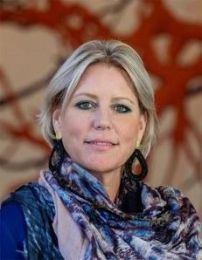
On the eve of the recent European Parliament elections, Maastricht was once again the venue for vibrant debates on the future of Europe. The Studio Europa debate and ITEM round table discussions at the EIPA building brought European politicians back to the city where the Europe of the Regions was proclaimed in 1992. This setting holds symbolic significance, reminding us of what we collectively stand for in Europe.
Fortunately, the election results show that Europe-minded parties in the Netherlands continue to perform well. Moreover, at 47 percent, voter turnout was higher than in previous elections. This demonstrates Europe’s continued relevance in society. However, the political landscape remains fluid, with noticeable shifts and a pull to the right following recent national elections.
For those of us dedicated to Europe’s future, it is clear that much needs to be done. It is time to act, focusing on practical cooperation across different government levels to reach European citizens effectively. Maastricht University has long been a partner to various institutions of government at national, European, and global levels. Now, more than ever, we must bring our experience to bear and contribute to Europe’s future.
As for the national political landscape, the new four-party coalition agreement will have significant implications for our border region. The announced budget cuts and changes to study migration policies are set to affect education, research and innovation. Here in Limburg province, we will continue collaborating with regional stakeholders to support the economic and social development of our border region. We feel that politicians should see a border region as more than just a Dutch province; it requires collaboration with our neighbouring countries. We are committed to strengthening our partnerships with Dutch ministries and authorities from neighbouring countries to tackle our joint challenges together.
Both scientifically and socially, we are actively collaborating with our Belgian and German neighbours. With the Belgian presidency of the European Commission prioritising European industrial policy and competitiveness, we see a vital opportunity to balance economic growth with social well-being through enhanced international cooperation. Since 2015, ITEM and Hasselt University have been working together to improve the impact of science on society in the border region. Recently, this collaboration has widened to include the Flemish and Dutch governments in an INTERREG Schakelpunt project for sustainable solutions to border obstacles, with a kick-off meeting scheduled for 4 September in Antwerp.
Two months later it’s time to celebrate ITEM’s 10th anniversary. So join the ITEM Annual Conference, which will be held in Ghent on 22 November. Hosted by East Flanders Governor Carina van Cauter and supported by the Flemish Ministry of Chancellery and Foreign Affairs, the conference will focus on strengthening European competitiveness and transitioning from the Green Deal to the Industrial Deal. Let’s work together for impact as ITEM contributes with its border impact methodology on critical raw materials, the Net Zero Industry Act, and Corporate Sustainability Due Diligence. Mark your calendars and join us in shaping the future together.
Rianne Letschert
Voorzitter Maastricht University
